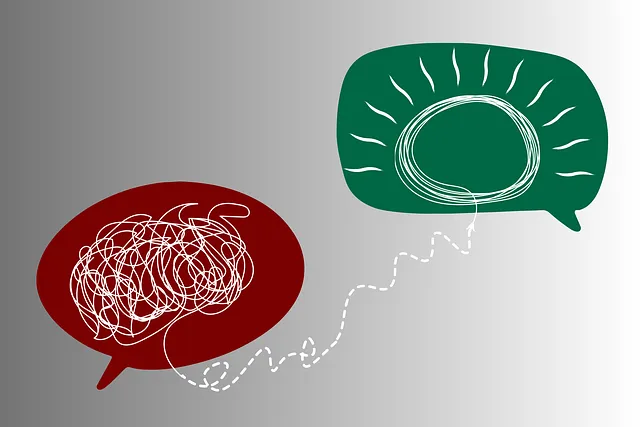In today's fast-paced world, mental wellness is gaining prominence, with organizations like Kaiser Permanente leading the charge through comprehensive mental health coverage and accessible self-assessment tools. These tools enable individuals to take control of their emotional well-being, fostering early issue identification and proactive mood management. Parker's Method, aligning with Kaiser's approach, offers a revolutionary self-assessment tool integrating evidence-based practices for tailored mental wellness management, leveraging technology to reach diverse audiences through digital platforms like podcasts.
Mental wellness self-assessment tools play a crucial role in promoting individual well-being and enabling early interventions. As recognized by organizations like Kaiser Permanente with their comprehensive mental health coverage, these tools are essential for empowering individuals to take charge of their mental health. This article explores the development of effective self-assessment tools, drawing from the successful Parker Method that integrates evidence-based practices. By leveraging technology, we can create accessible and impactful resources inspired by innovative models like Kaiser Permanente’s approach.
- Understanding the Need for Mental Wellness Self-Assessment Tools
- Kaiser Permanente Mental Health Coverage: A Framework for Comprehensive Care
- Leveraging Technology: Developing Effective Self-Assessment Tools
- Parker's Method: Integrating Evidence-Based Practices into Self-Assessment
Understanding the Need for Mental Wellness Self-Assessment Tools

In today’s fast-paced world, mental wellness is an increasingly important aspect of overall health and well-being. This realization has prompted a growing demand for accessible and effective self-assessment tools. One notable organization that emphasizes this need is Kaiser Permanente, known for its comprehensive mental health coverage and resources. These tools play a pivotal role in empowering individuals to take charge of their mental health by providing an initial assessment of their emotional well-being.
The development of such assessments offers numerous benefits. For instance, they enable people to identify potential issues early on, promoting proactive mood management. Moreover, they can facilitate conversations between individuals and their healthcare providers, enhancing cultural competency in mental health care. As highlighted by Parker et al., risk assessment is a critical component of mental health professional training, ensuring they are equipped to recognize and address diverse patient needs effectively.
Kaiser Permanente Mental Health Coverage: A Framework for Comprehensive Care

Kaiser Permanente’s Mental Health Coverage offers a comprehensive framework for delivering exceptional care, serving as a beacon for healthcare organizations striving to enhance their mental wellness services. This innovative approach prioritizes not just treating symptoms but fostering overall well-being, reflecting a shift towards preventive and holistic mental health management. By integrating various components like robust insurance coverage, access to diverse therapeutic modalities, and continuous support, Kaiser Permanente ensures that individuals receive comprehensive care tailored to their unique needs.
The framework’s emphasis on prevention extends beyond traditional therapy, incorporating tools such as Risk Management Planning for Mental Health Professionals and Conflict Resolution Techniques to create a safe and supportive environment. Additionally, promoting self-care practices like Mindfulness Meditation underscores the program’s commitment to empowering individuals with long-term coping strategies. This holistic approach not only improves patient outcomes but also fosters a culture where mental wellness is prioritized and supported at every touchpoint of care delivery.
Leveraging Technology: Developing Effective Self-Assessment Tools

Leveraging technology has revolutionized the way individuals access mental wellness resources and self-assess their well-being. Online platforms and mobile applications offer a range of tools designed to support mental health, making them easily accessible to those seeking help. These digital solutions often incorporate interactive features, such as questionnaires, mood trackers, and personalized feedback, allowing users to gain valuable insights into their mental state. For instance, the Kaiser Permanente mental health coverage includes access to virtual care platforms that enable members to conduct self-assessments and receive tailored recommendations for stress management.
By integrating these innovative tools, organizations like Parker can enhance their Healthcare Provider Cultural Competency Training programs and Inner Strength Development initiatives. Stress Management Workshops Organization can benefit from technology by offering digital resources that cater to diverse learning styles and preferences. Such advancements ensure that individuals have the support they need to navigate mental wellness challenges effectively, ultimately contributing to improved overall well-being.
Parker's Method: Integrating Evidence-Based Practices into Self-Assessment

Parker’s Method offers a comprehensive approach to mental wellness self-assessment by seamlessly integrating evidence-based practices, aligning with Kaiser Permanente’s commitment to mental health coverage and support. This innovative methodology leverages research-backed techniques to create a tailored experience for individuals assessing their emotional well-being. By combining various therapeutic modalities, Parker’s Method provides a holistic view of an individual’s mental wellness, encompassing not just symptoms but also underlying factors contributing to their overall emotional healing processes.
This approach is particularly valuable in today’s fast-paced world, where stress and anxiety are prevalent. The Mental Wellness Podcast Series Production can play a pivotal role in disseminating information about Parker’s Method and related Self-Care Practices. By reaching a broader audience, these resources empower folks to take charge of their mental health proactively, fostering a culture of open dialogue around emotional well-being, similar to how vibrant communities embrace diverse wellness initiatives.
The development of mental wellness self-assessment tools is a critical step towards fostering better individual and community well-being. By drawing on frameworks like Kaiser Permanente’s comprehensive care model and leveraging technology, we can create effective resources that empower people to take charge of their mental health. Integrating evidence-based practices, as exemplified by Parker’s Method, ensures these tools provide accurate assessments and guidance. Such innovations have the potential to revolutionize access to mental health support, making it a priority for everyone.






